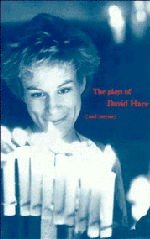Book contents
- Frontmatter
- Contents
- Acknowledgements
- Introduction: a statement of departure
- 1 The sixties revolution
- 2 Stepping into the past
- 3 A turning over
- 4 The people's war and peace
- 5 Sense of an ending
- 6 The foundry of lies
- 7 Dreams of leaving
- 8 Drawing a map of the world
- 9 All our escapes
- 10 Painting pictures
- 11 The moment of unification
- 12 Strapless
- 13 Heading home?
- 14 Stepping into the future
- Conclusion: a statement of arrival
- Notes
- Select bibliography
- Index
6 - The foundry of lies
Published online by Cambridge University Press: 10 May 2010
- Frontmatter
- Contents
- Acknowledgements
- Introduction: a statement of departure
- 1 The sixties revolution
- 2 Stepping into the past
- 3 A turning over
- 4 The people's war and peace
- 5 Sense of an ending
- 6 The foundry of lies
- 7 Dreams of leaving
- 8 Drawing a map of the world
- 9 All our escapes
- 10 Painting pictures
- 11 The moment of unification
- 12 Strapless
- 13 Heading home?
- 14 Stepping into the future
- Conclusion: a statement of arrival
- Notes
- Select bibliography
- Index
Summary
Pravda opened at the National Theatre on 2 May 1985 on the eve of the Wapping dispute which signalled the beginning of the end of Fleet Street. Written for the newly established Hare/Eyre performance group within the National Theatre company, Pravda was the first partnership collaboration between Hare and Brenton for twelve years, and in one sense a companion piece to Brassneck. If 1973 in Nottingham had seen, in echoing the Poulson affair, the dissection of how the perceived socialist expectations of the British people after the war went down the middle in compromise capitalism and calculating corruption, Pravda effected a comparable dissection of how, in the face of even more voracious capitalism and the failure of opposition in the 1980s, it all went to the Right. Unashamedly funny, Pravda set out to use comedy in the theatre not only to effect a reader's revenge but as a democratic force; in fact, what was both Hare's and Brenton's most popular play to date expressed a deep ambivalence to what they would oppose.
Lambert Le Roux and the new Right
At the beginning of Pravda an ambitious young journalist, Andrew May, is working in quiet obscurity in the provinces on an old-fashioned Beaverbrook-type family-owned newspaper, where the office is full of old typewriters and gothic lettering and the political view is inherently conservative. When the paper is sold to generate short-term capital and the new proprietor purges the old regime, Andrew May gains swift promotion to the post of editor.
- Type
- Chapter
- Information
- The Plays of David Hare , pp. 87 - 102Publisher: Cambridge University PressPrint publication year: 1995



